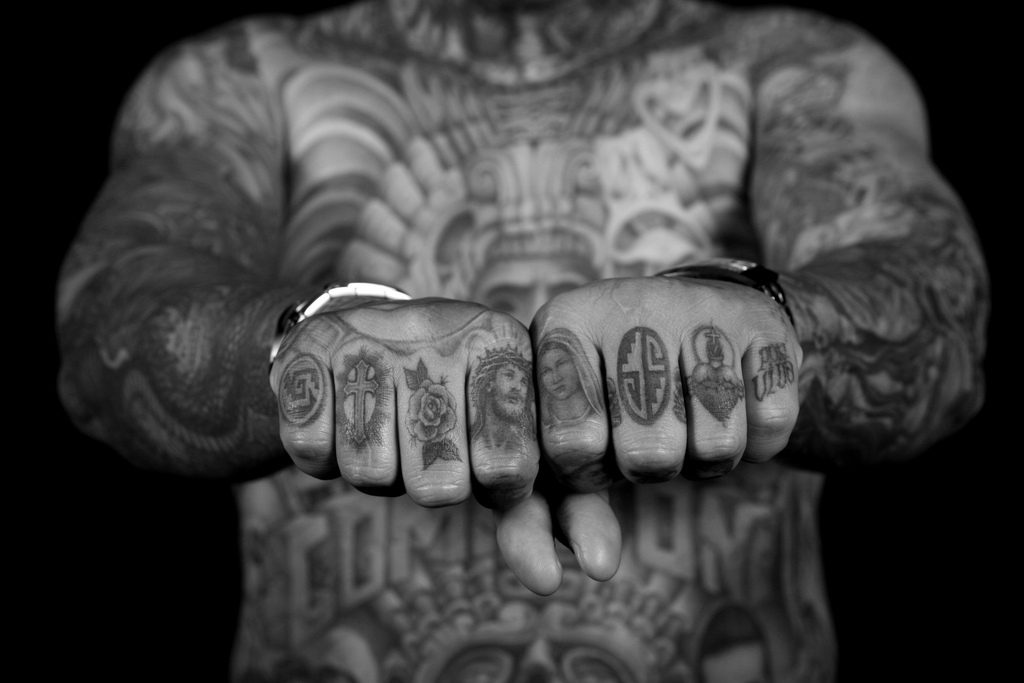A recent survey found that 64% of UK recruiters see tattoos as an undesirable feature. So, are people being discriminated against because of their tattoos?
We’re a heavily-inked nation. One in five of the UK population, and one in three among the young, has a tattoo. They can be signs of love, spirituality, belonging or solidarity. In the wake of the attacks in Manchester, hundreds queued to get themselves tattooed with an image of a worker bee – the emblem of the City.
And yet a recent survey carried out by Acas shows that they’re viewed negatively by employers, meaning that talented but tattooed applicants are missing out.
It isn’t restricted to the private sector. Since 2012, the Metropolitan Police has banned new visible tattoos and required employees to declare any which they already have, or risk losing their jobs. Last year, the Police Federation claimed that this measure was too harsh, causing good candidates to be passed over. But is tattoo discrimination unlawful?

Protection from Discrimination
Although it might seem unfair for companies to have a policy of not employing people with visible tattoos, there aren’t any clear rules that prevent them from doing so. That’s what trainee primary school teacher Charlotte Tumilty found out when she was dismissed following complaints from colleagues about the tattoos on her arms, necks and fingers.
The school couldn’t have refused to employ Charlotte because of her race, religion, or gender. Why is having a tattoo different?
We all have the right to live our lives free from discrimination. Article 14 of the Human Rights Convention protects against discrimination where you can show that other human rights are in play – for example, where a decision or policy impacts upon your right to freedom of expression, or your right to freedom of religion. Article 10 of the Human Rights Convention protects the right to express yourself in many ways, which could include wearing imagery, symbols and words on our own bodies. Article 9 protects the right to freedom of thought, conscience or belief, so would apply if a tattoo was a religious sign.
However, in some cases the employer might be able justify discrimination on the basis that it’s justified and proportionate.
The Equality Act also provides protection from discrimination, but only for certain protected characteristics, namely age, disability, gender reassignment, religion, sex, race, pregnancy and maternity, marriage and civil partnership, and sexual orientation. Being a tattooed person doesn’t give you a protected characteristic. Nor, for that matter, does looking a certain way.
We don’t like the way you look
There’s no general restriction against ‘looksism’, and many employers, particularly in media and fashion, do it all the time. However, in some instances, looksism does cross the line into unlawful discrimination. In 2009, Abercrombie & Fitch had to pay £8,000 in damages for unlawful harassment of a woman with a prosthetic arm who’d been side-lined at work due to her disability, which didn’t conform to their ‘Look Policy’.
Accountants’ PwC were under scrutiny last year for a dress policy which demanded that women employees wear heels at least two inches high, a policy that two parliamentary committees considered to be discriminatory on grounds of sex.

Particular groups
If a general policy impacts one particular group over another, then it could amount to indirect discrimination.
In a case called Harris v McDonalds, a female employee with barely noticeable tattoos on her fingers and arms was found to have been unlawfully discriminated against when it was revealed that McDonalds had not taken similar action against male employees with tattoos on their forearms.
Given that incidence of tattooing is far more common among certain groups – for example the young, former convicts, or ex military personnel – it could be argued that a policy that impacts them is discriminatory. In respect of former prisoners, any ban on tattoos could be preventing them from re-entering the world of work and settling back into society.

What next?
Calls are growing for greater protection, and Acas has published guidance recommending that employers review any strict no-tattoo policy.
As Acas’ Head of Equality, Stephen Williams, said, “Whilst it remains a legitimate business decision, a dress code that restricts people with tattoos might mean companies are missing out on talented workers.”
This article is not legal advice and is not intended to advise comprehensively about your legal rights. If you have legal questions relating to tattoo discrimination or any other matter we suggest that you consult a lawyer – details of how to find one are here.
Want to know more?:
- See our infographics about Discrimination and Freedom of Expression







